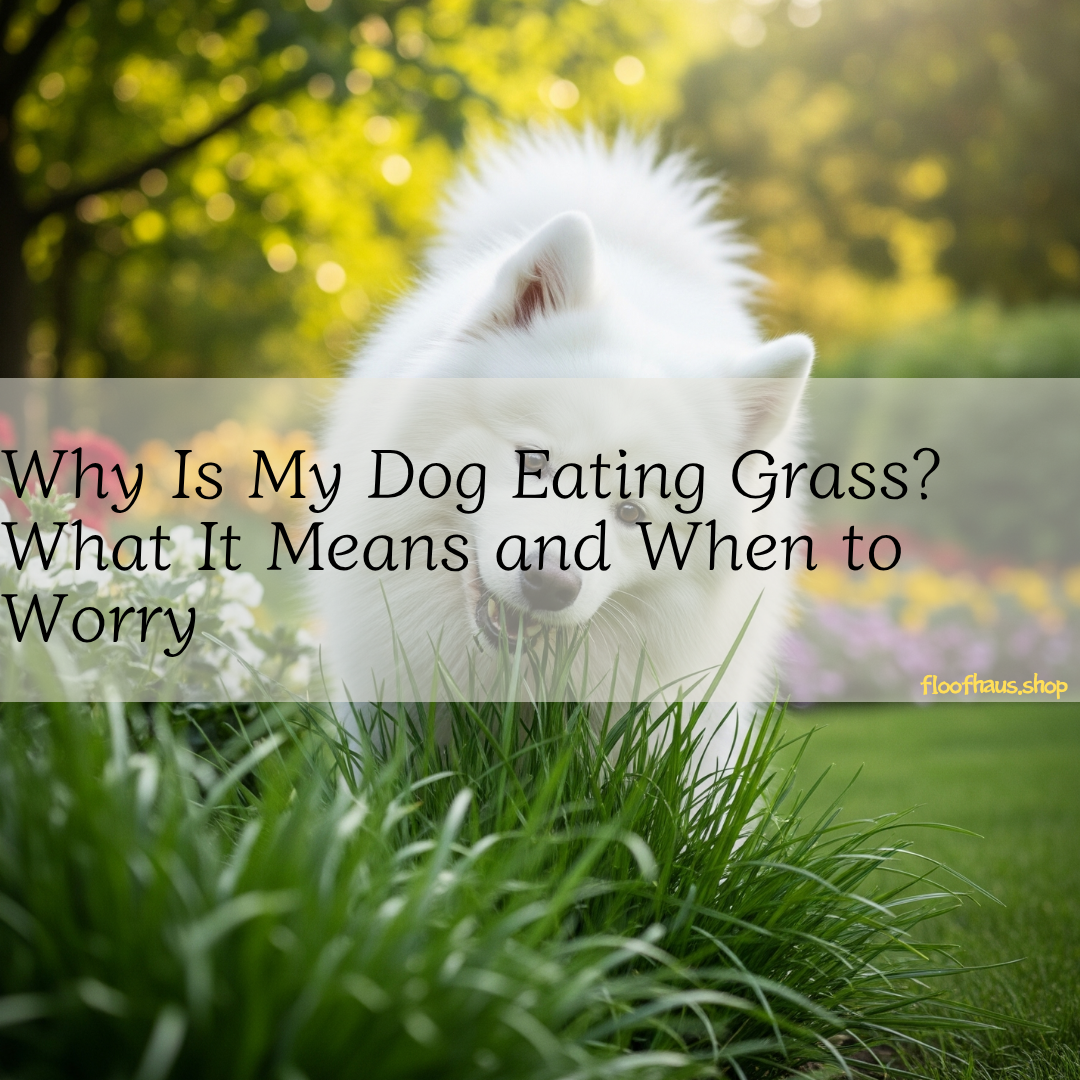
Why Is My Dog Eating Grass? What It Means and When to Worry
Share

If you’ve ever watched your dog munch on grass during a walk or in the backyard, you’re not alone. Many pet owners have wondered, “Why is my dog eating grass?” It might seem odd—especially when there’s perfectly good dog food at home—but this behavior is surprisingly common.
In this article, we’ll explore why dogs eat grass, whether it’s harmful, and what pet parents should watch for to ensure their furry friend stays healthy.
Common Theories Behind Dog Eating Grass
Yes, in most cases, dog eating grass is a completely normal behavior. Veterinarians often refer to it as “pica,” a term for eating things that aren’t typically considered food. For dogs, grass is one of the most common non-food items they snack on.
While there isn’t a single definitive answer, several theories help explain this puzzling behavior. One of the most common beliefs is that dogs eat grass to induce vomiting when they have an upset stomach. However, studies show that only a small percentage of dogs actually vomit after eating grass. This suggests that the act may not always be linked to illness.
Another theory points to instinct. Dogs are omnivores by nature and may consume grass as a natural part of their diet, similar to how wild canines consume plant matter found in the stomachs of herbivorous prey.
Some dogs may simply enjoy the taste or texture of grass. If the behavior is occasional and not accompanied by other symptoms, it could just be a harmless habit.
Why Do Dogs Eat Grass?
There’s no single reason, but here are some common theories behind grass-eating behavior:
- It’s instinctual. Wild canines may have consumed plant material in the stomachs of prey, and domestic dogs could retain that habit.
- They like the taste or texture. Some dogs just enjoy the sensation of chewing on blades of grass.
- It aids digestion. Grass may help dogs pass something through their system or add fiber to their diet.
- They're bored or anxious. Like chewing shoes or digging, eating grass can be a response to stress or lack of stimulation.
- They’re missing nutrients. A diet lacking in fiber or certain minerals might lead some dogs to search for it elsewhere.
When to Be Concerned
Occasional grass eating is usually nothing to worry about. However, certain signs mean it’s time to contact your vet:
- Frequent vomiting after eating grass
- Lethargy or loss of appetite
- Persistent diarrhea
- Obsessive grass eating every time they go outside
- Signs of poisoning like drooling, shaking, or uncoordinated movements
Also, consider the source of the grass. Lawns treated with pesticides, herbicides, or fertilizers can be dangerous—even fatal—to dogs. Always supervise outdoor grazing and avoid chemically treated areas.
How floofhaus Helps Support Your Dog’s Health
At floofhaus.shop, we believe that curious behaviors—like a dog eating grass—can often be a clue to your pet’s well-being. That’s why we offer health-conscious products like high-fiber treats, enrichment toys to reduce boredom, and natural supplements to support digestion.
If your dog’s grass-eating seems rooted in anxiety or dietary gaps, our carefully curated collections may offer exactly what they need to feel their best.
Explore our shop for pet-friendly solutions that put health and comfort first.
Final Thoughts
A dog eating grass occasionally isn’t unusual or harmful in most cases. Still, as a responsible pet parent, it’s important to observe their habits and know when to investigate further. If you're ever unsure, consult your vet—and in the meantime, keep your pup busy, enriched, and nutritionally balanced.
Sources
-
American Kennel Club (AKC)
“Why Do Dogs Eat Grass?”
https://www.akc.org/expert-advice/health/why-do-dogs-eat-grass/ -
VCA Animal Hospitals
“Pica in Dogs”
https://vcahospitals.com/know-your-pet/pica-in-dogs -
PetMD
“Is It Normal for Dogs to Eat Grass?”
https://www.petmd.com/dog/general-health/why-do-dogs-eat-grass -
ASPCA Animal Poison Control Center
“Common Plants and Lawn Chemicals That Are Toxic to Pets”
https://www.aspca.org/pet-care/animal-poison-control
